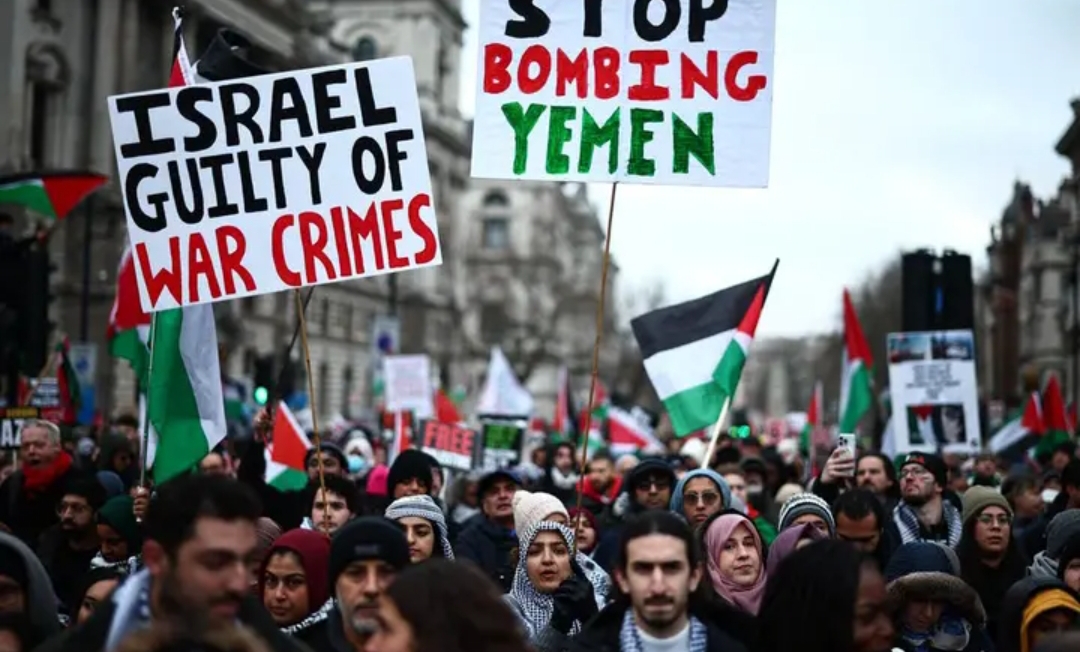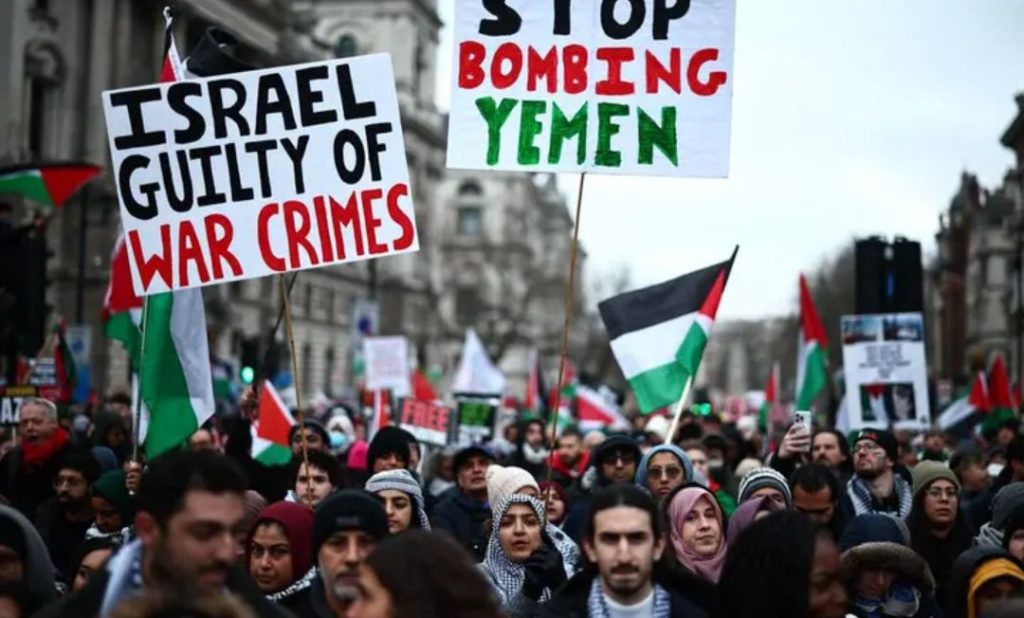
As thousands of pro-Palestinian protesters gear up for the eighth National March for Palestine in central London, a row has erupted over the substantial police presence and alleged restrictions imposed by the Metropolitan Police.
The Stop the Genocide, Ceasefire Now rally, scheduled for this Saturday, has faced accusations of being hindered by a “politicised and repressive” police force, prompting concerns about freedom of expression and the right to peaceful assembly as reported by The Guardian News.

The rally is set to depart near the BBC headquarters on Portland Place at 12 pm, with the route passing through Regent Street, Haymarket, and Trafalgar Square before speeches take place at Whitehall. Organizers expressed discontent with the Metropolitan Police, accusing them of threatening to obstruct the peaceful march through the West End.
Deputy Assistant Commissioner Matt Ward defended the significant police presence, emphasizing the aim to ensure the safety of the event and minimize disruption to others. However, the Palestine Solidarity Campaign (PSC) claimed that restrictions, particularly the prohibition of having two stages in Trafalgar Square and Whitehall, could lead to “heavy congestion” on Regent Street and Piccadilly.
PSC director Ben Jamal stated, “Unfortunately, the policing of the marches has become increasingly politicised and repressive over several months.” He asserted that despite negotiations with the police, the restrictions could impede the march’s effectiveness in sending a message to the government regarding Israel’s actions.
Scotland Yard acknowledged the lawful and peaceful nature of the majority of previous demonstrations but highlighted that a minority had engaged in illegal activities, resulting in arrests related to supporting Hamas militants and anti-Jewish hatred. Police warned that individuals carrying offensive placards or making statements crossing the line into religiously or racially aggravated offenses would be swiftly dealt with.
Deputy Assistant Commissioner Matt Ward underscored the importance of striking a balance between the right to protest and the rights of other Londoners and visitors. He acknowledged the impact of repeated protests on businesses, residents, and West End travelers but committed to handling the situation independently, impartially, and within the confines of the law.
Precautionary measures, including potential restrictions on face coverings and additional dispersal powers, are being considered by the police. A highly visible police presence will be maintained, with teams monitoring the protest through CCTV to identify potential crimes or suspects.
As London braces for another pro-Palestine demonstration, the clash between organizers and law enforcement raises questions about the delicate balance between the right to protest and the maintenance of public safety and order. The controversy surrounding police restrictions adds a layer of complexity to an already contentious issue, reigniting discussions about the boundaries of free expression and assembly in the heart of the UK’s capital.




